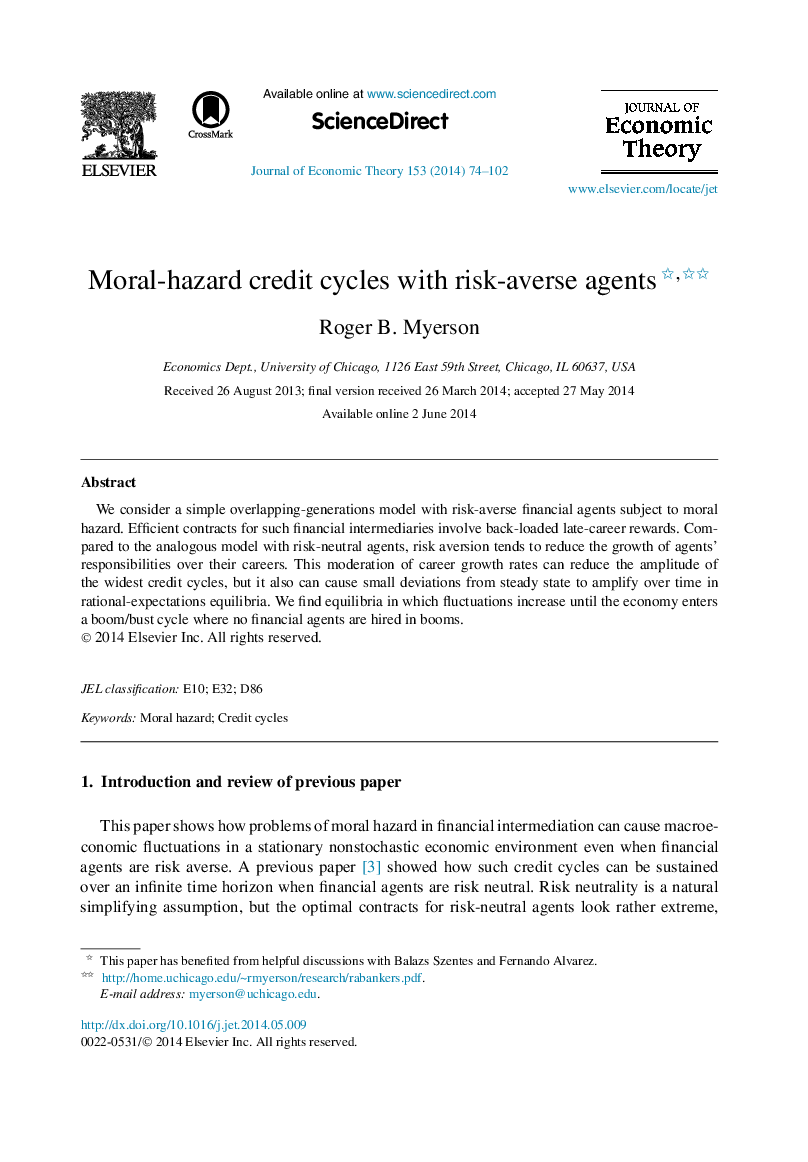| Article ID | Journal | Published Year | Pages | File Type |
|---|---|---|---|---|
| 956637 | Journal of Economic Theory | 2014 | 29 Pages |
Abstract
We consider a simple overlapping-generations model with risk-averse financial agents subject to moral hazard. Efficient contracts for such financial intermediaries involve back-loaded late-career rewards. Compared to the analogous model with risk-neutral agents, risk aversion tends to reduce the growth of agents' responsibilities over their careers. This moderation of career growth rates can reduce the amplitude of the widest credit cycles, but it also can cause small deviations from steady state to amplify over time in rational-expectations equilibria. We find equilibria in which fluctuations increase until the economy enters a boom/bust cycle where no financial agents are hired in booms.
Keywords
Related Topics
Social Sciences and Humanities
Economics, Econometrics and Finance
Economics and Econometrics
Authors
Roger B. Myerson,
